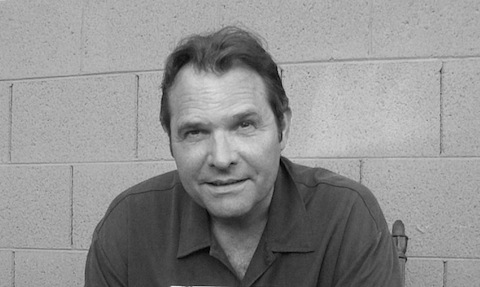
A Survey of Writers on Contemporary Writers
Listening to writers read and discuss their work at Newtonville Books, the bookstore my wife and I own outside Boston, I began to wonder which living, contemporary writers held the most influence over their work. This survey is not meant to be comprehensive, but is the result of my posing the question to as many writers as I could ask.
DENIS JOHNSON

© Jason Diamond
DAVID BEZMOZGIS: Along with J.M. Coetzee, I admire Denis Johnson. It is hard to say that his influence is subordinate to Coetzee’s, but if we judge simply by the frequency with which I return to any particular work, that might apply. Still, I’ve read Jesus’ Son more times than I can count. Johnson can conjure up an altered, hallucinatory state that straddles the line between reality and dream—and often synthesizes the two. It’s to be found in all the books of his that I’ve read, beginning with Angels. He has the rare ability to access the metaphysical dimension, which everyone suspects but few can describe. And with Johnson, as with the other writers, it comes down to the boldness and vibrancy of language. I have never encountered a flat metaphor or thought in his work.
CHARLES BOCK: Denis Johnson’s first novel, Angels, and of course the great short story collection Jesus’ Son were important to me for their language and humor and ideas of redemption.
CHRISTOPHER BOUCHER: For me, Jesus’ Son’s impact has something to do with the way that I discovered it: I took a course in college on Edmund Spenser and John Milton, and halfway through our reading of Spenser’s The Faerie Queene I was struck by how different this literature was than any contemporary literature I’d come across. That was a pretty naïve observation, in retrospect, but nevertheless I met with my professor to ask if anyone was writing “this kind of stuff” nowadays.
He might have steered me in several directions—towards classic science fiction or fantasy, or towards other long poetic works, but instead he suggested work by two contemporary authors: Kathy Acker and Denis Johnson. I didn’t read Acker until later, but I read Jesus’ Son immediately—that weekend, I recall—and I was absolutely floored by it. I found it innovative, moving and unlike anything else I’d ever read. I read the book again right away, and I’ve probably read it ten times total in the fifteen or so years since.
Jesus’ Son is labeled a collection of stories, but each story has the same narrator—thus, I read the book like a fractured, fragmented novel. The story cycle...
You have reached your article limit
Sign up for a digital subscription and continue reading all new issues, plus our entire archives, for just $1.50/month.
Already a subscriber? Sign in




